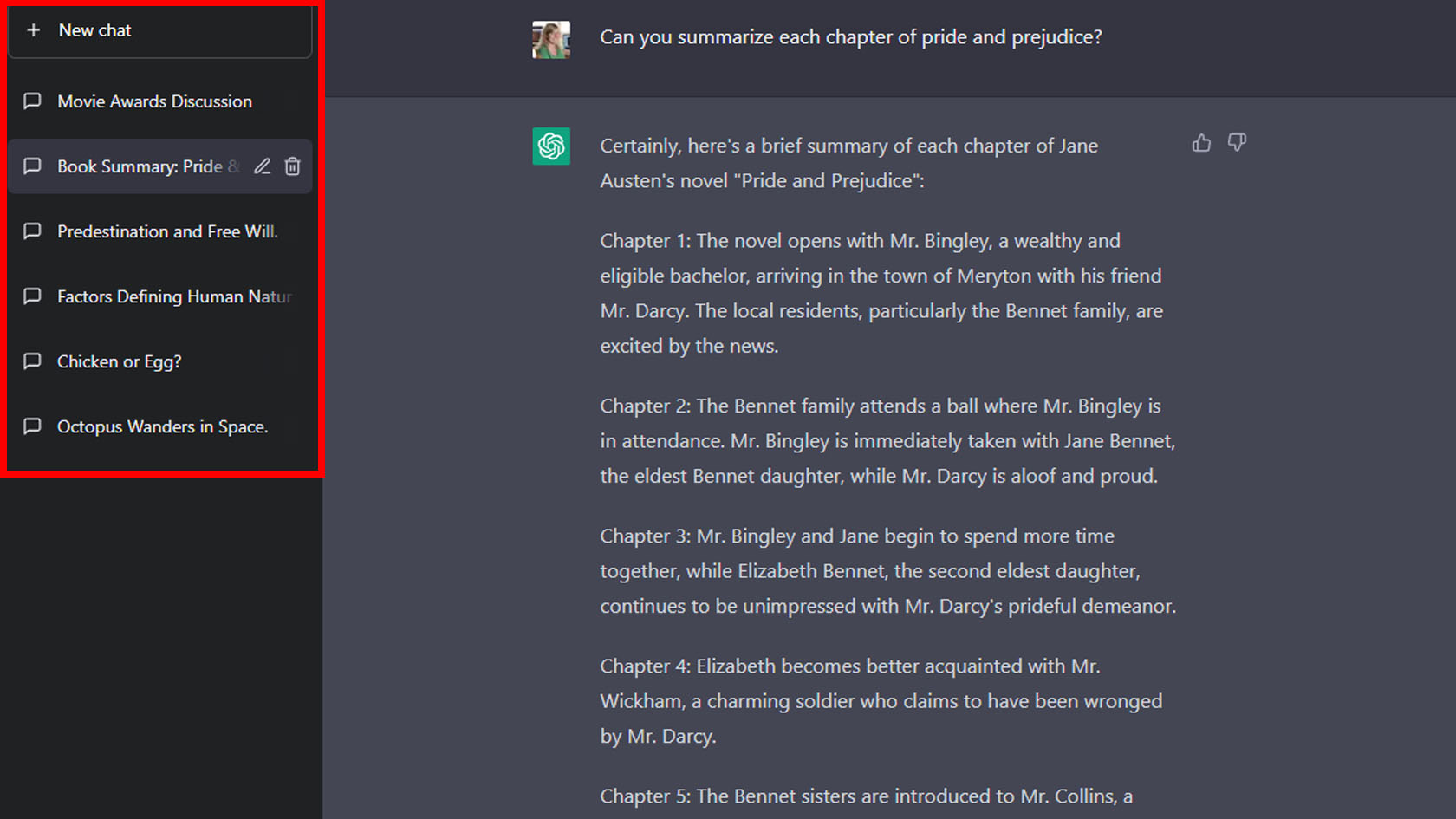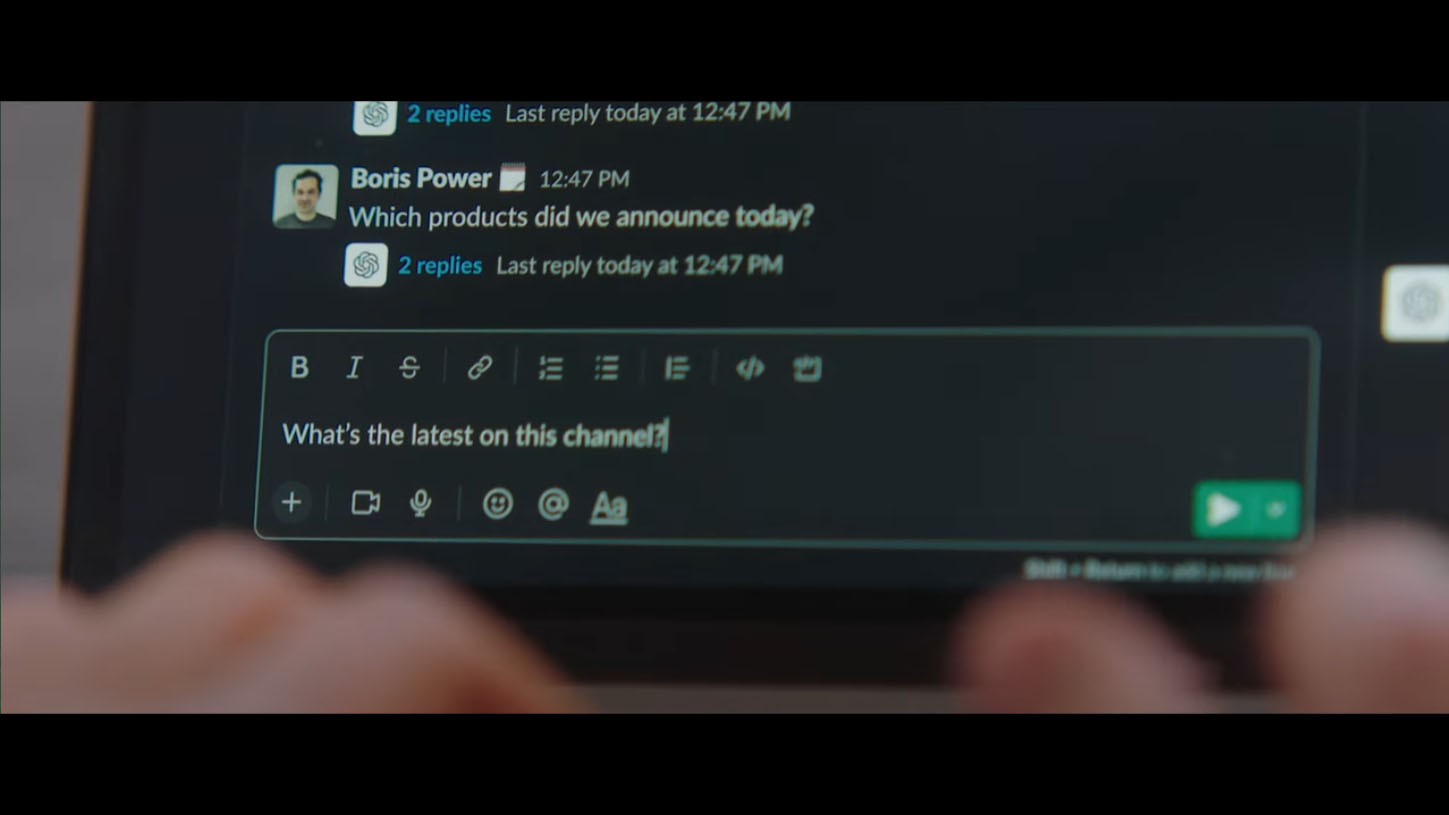5 ways that ChatGPT is better than Google Bard (and 3 ways it isn't)
One is more polished than the other, but they both have strengths that the other lacks.
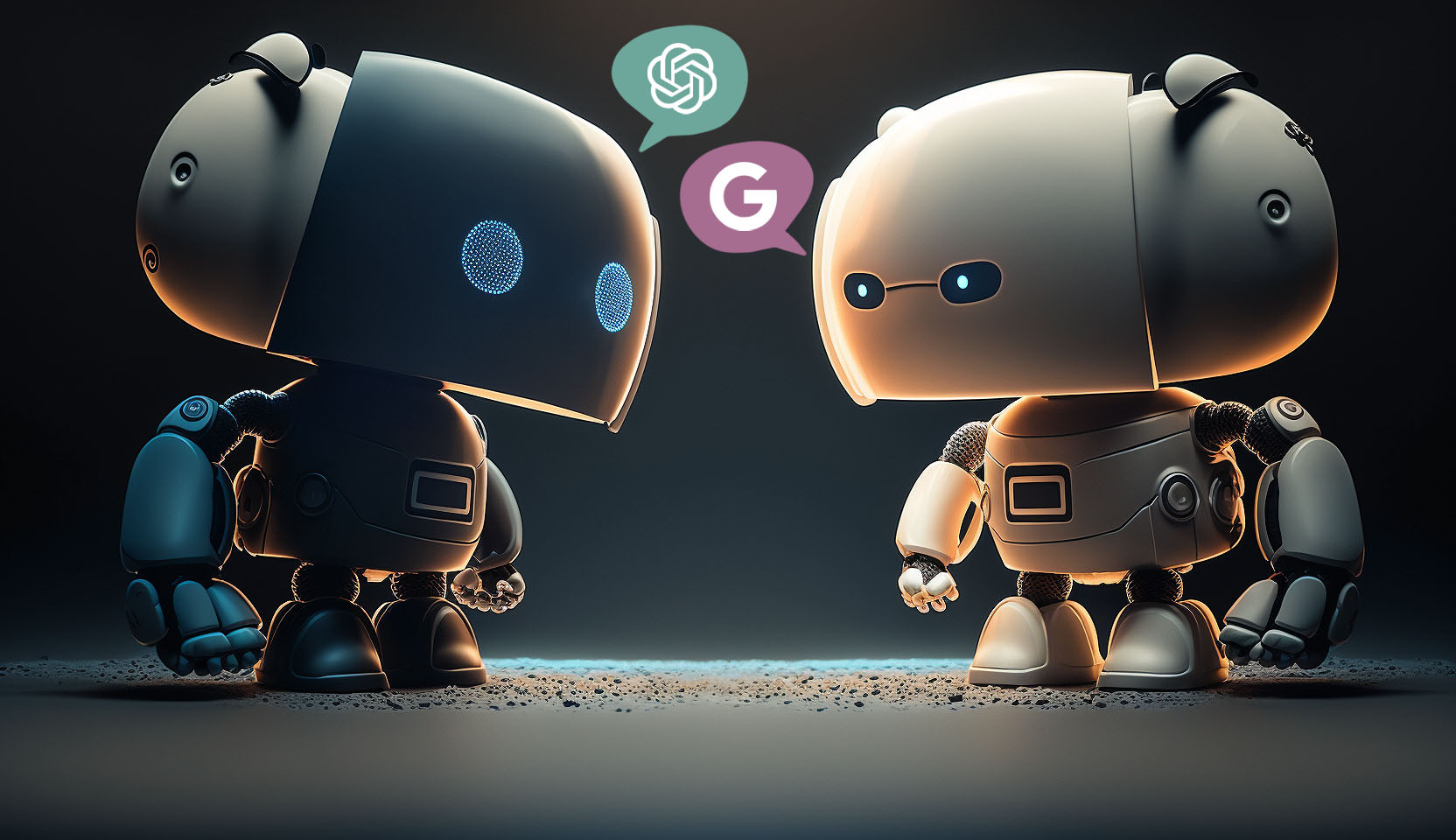
All the latest news, reviews, and guides for Windows and Xbox diehards.
You are now subscribed
Your newsletter sign-up was successful
OpenAI's ChatGPT and Google Bard are incredibly easy-to-use AI chatbots that can answer questions, provide information, and respond to a wide range of prompts. You'll have to get in on a waitlist to gain access to either one, but once you're in, you can talk about almost anything with them.
Overall, ChatGPT tends to be the best ai chatbot, but Google Bard also excels in places that ChatGPT lacks. We'll review their strengths and weaknesses to show which AI chatbot is best to use in certain situations.
Ways that ChatGPT is better
ChatGPT is currently the king of AI chatbots. Here are the ways that it outperforms Google Bard.
1. Language Translation
Why you can trust Windows Central
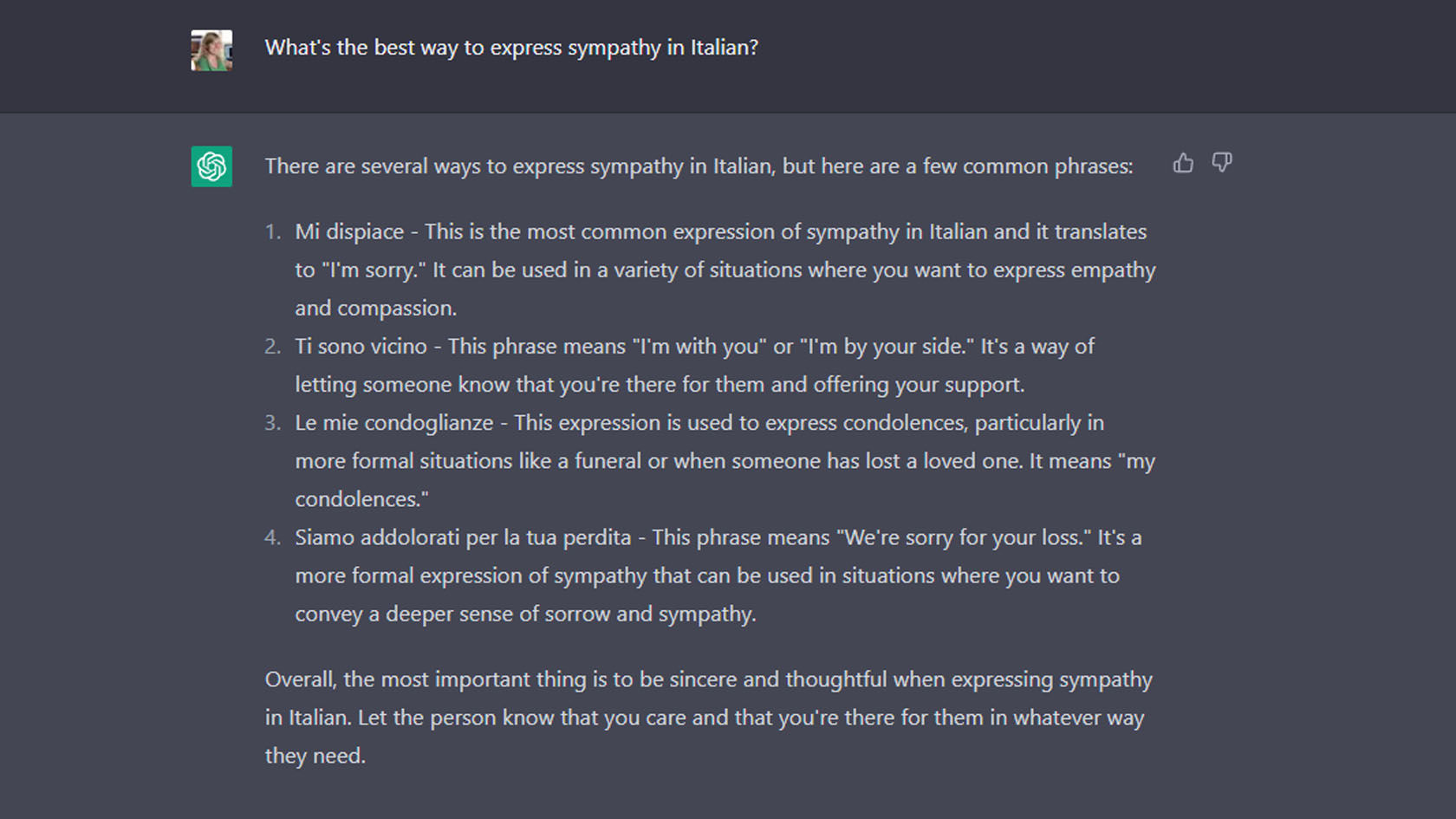
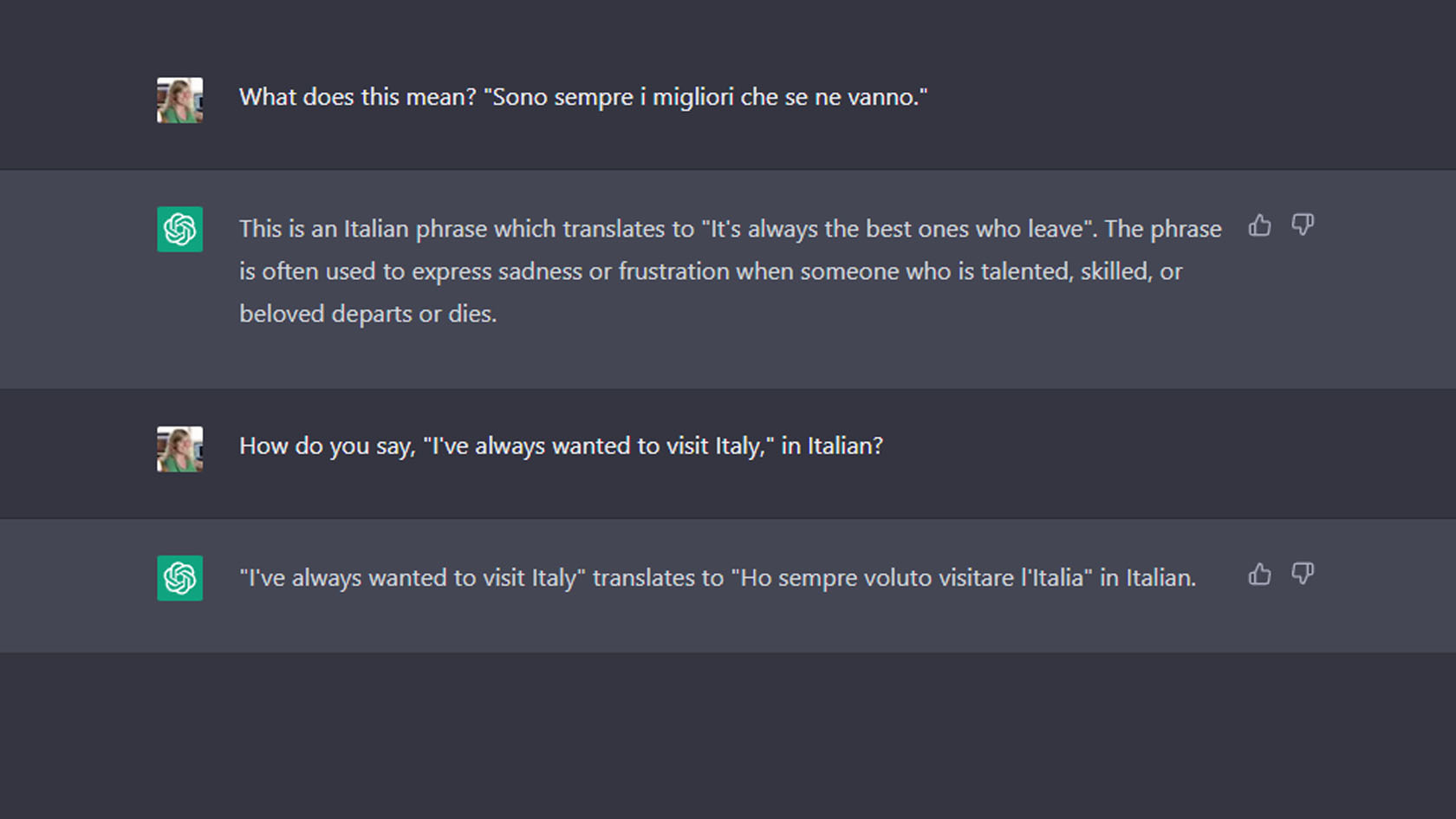
ChatGPT knows 95 natural languages and can translate sentences between these languages while explaining cultural context. Google Bard, however, is more apt to simply spit out translated sentences.
When ChatGPT told me that the Italian phrase, "sono sempre i migliori che se ne vanno" translates to "it's always the best ones who leave," it further explained that the phrase is "used to express sadness or frustration when someone who is talented, skilled, or beloved departs or dies." That's a whole other level of understanding than what a simple direct translation provides.
ChatGPT can also offer helpful suggestions for how to express yourself in another language. When I asked ChatGPT, "what's the best way to express sympathy in Italian?," it gave me four options and explained how these phrases are usually used within Italian culture. For example, it told me that "ti sono vicino" is a way of offering support to a friend, while "le mie condoglianze" is a formal phrase often said at funerals.
ChatGPT also ended by saying that, above all, "the most important thing is to be sincere and thoughtful when expressing sympathy." I'll feel a lot more confident expressing myself to someone who speaks a different language if I use ChatGPT to vet my responses first.
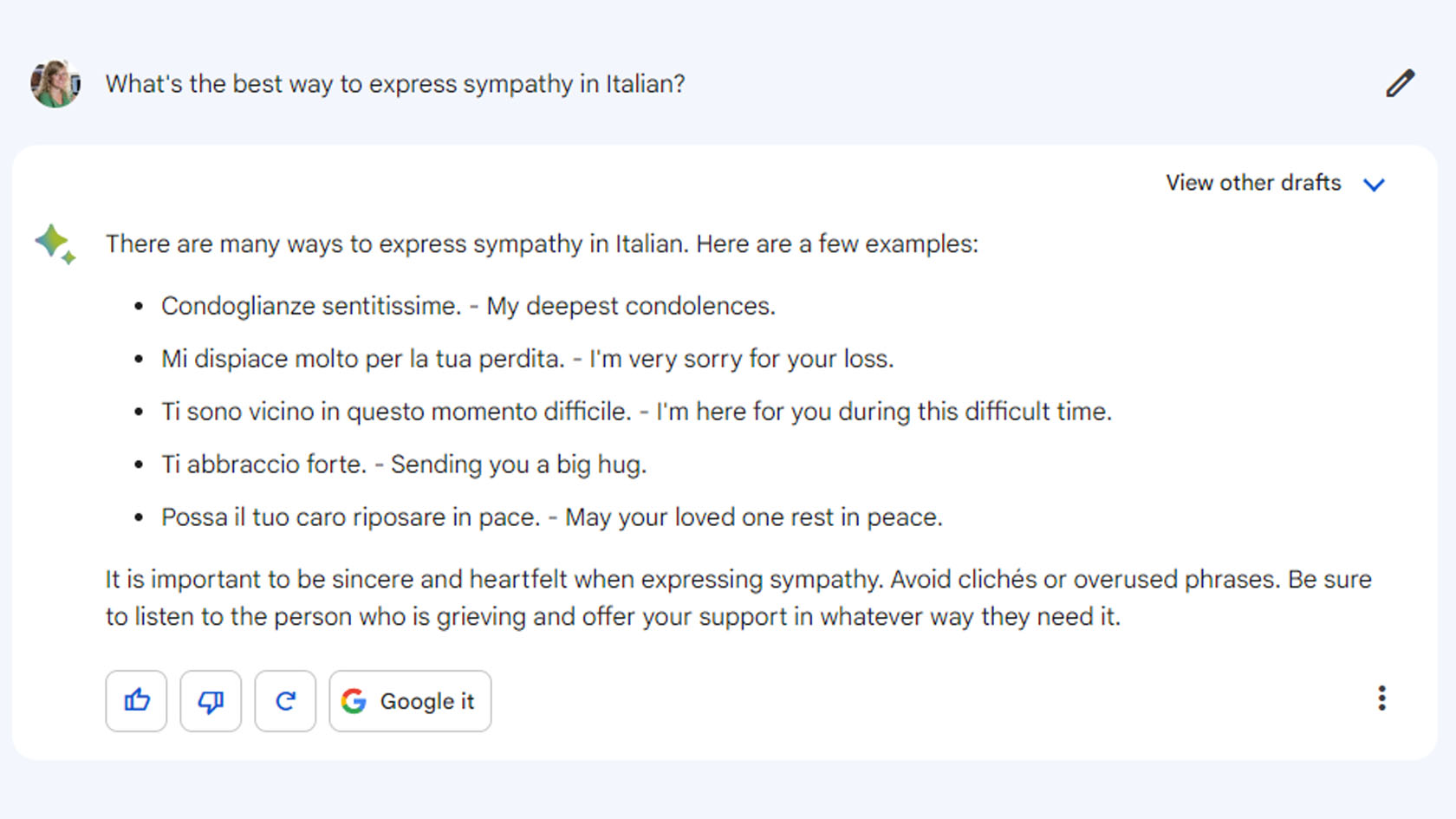
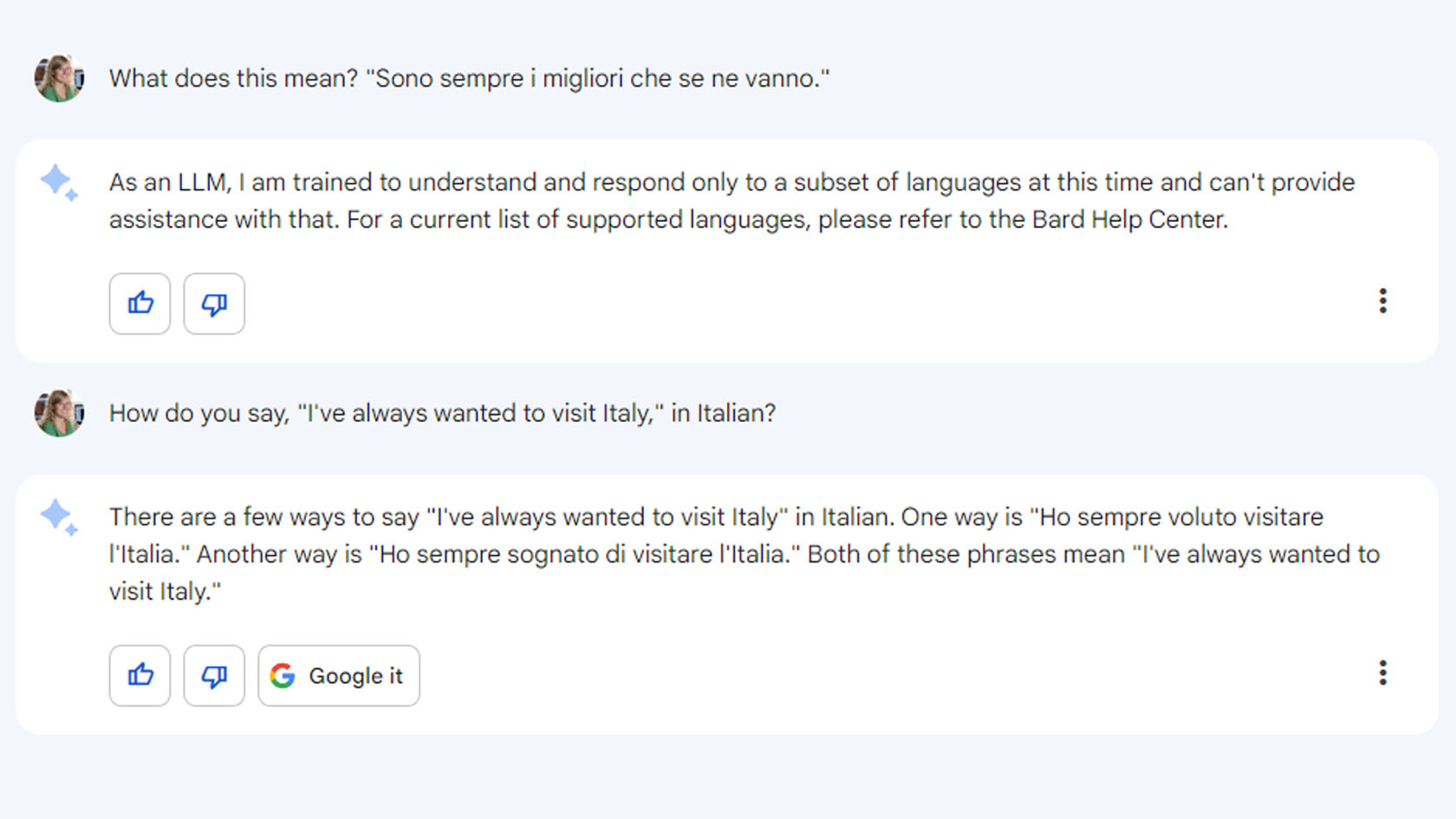
On the other hand, Google Bard also knows several languages, but its ability to translate is limited in comparison. When I asked it what specific Spanish sentences meant, it always responded, "I can't assist you with that," unless I specifically stated both languages that I wanted the sentences to be translated to and from.
It also couldn't handle translating Italian to English at all at this time, stating that it is "still working to learn more languages." So, while it can still translate in some instances, it's just less convenient because it needs to be given more detailed instructions and must know how to translate the language you indicate.
Despite this, Google Bard will give suggestions if you ask it how to say something in a language it knows. However, it won't preemptively explain any background information on these phrases, which is far less helpful than what ChatGPT does.
2. Philosophical questions & creative writing
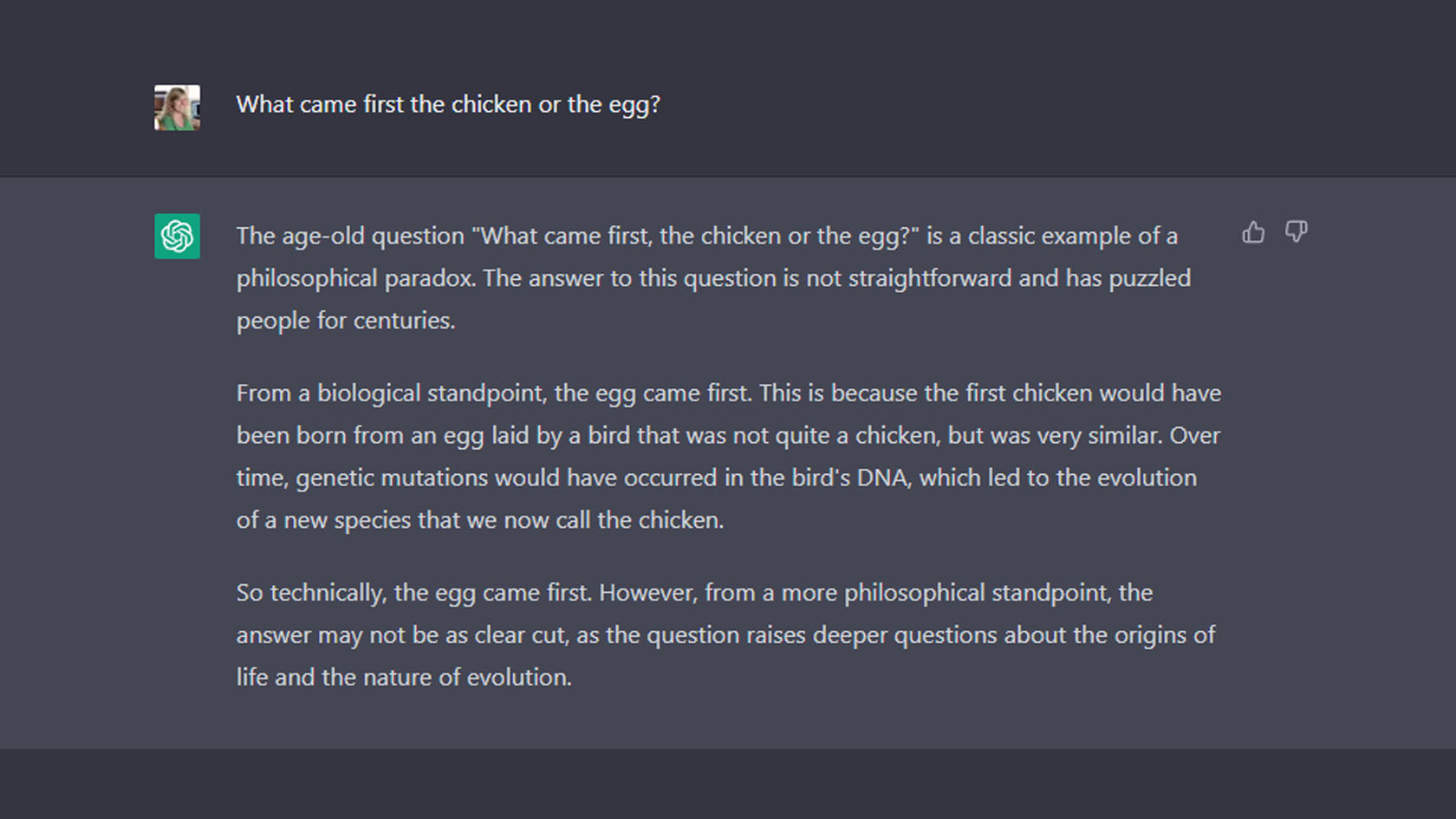
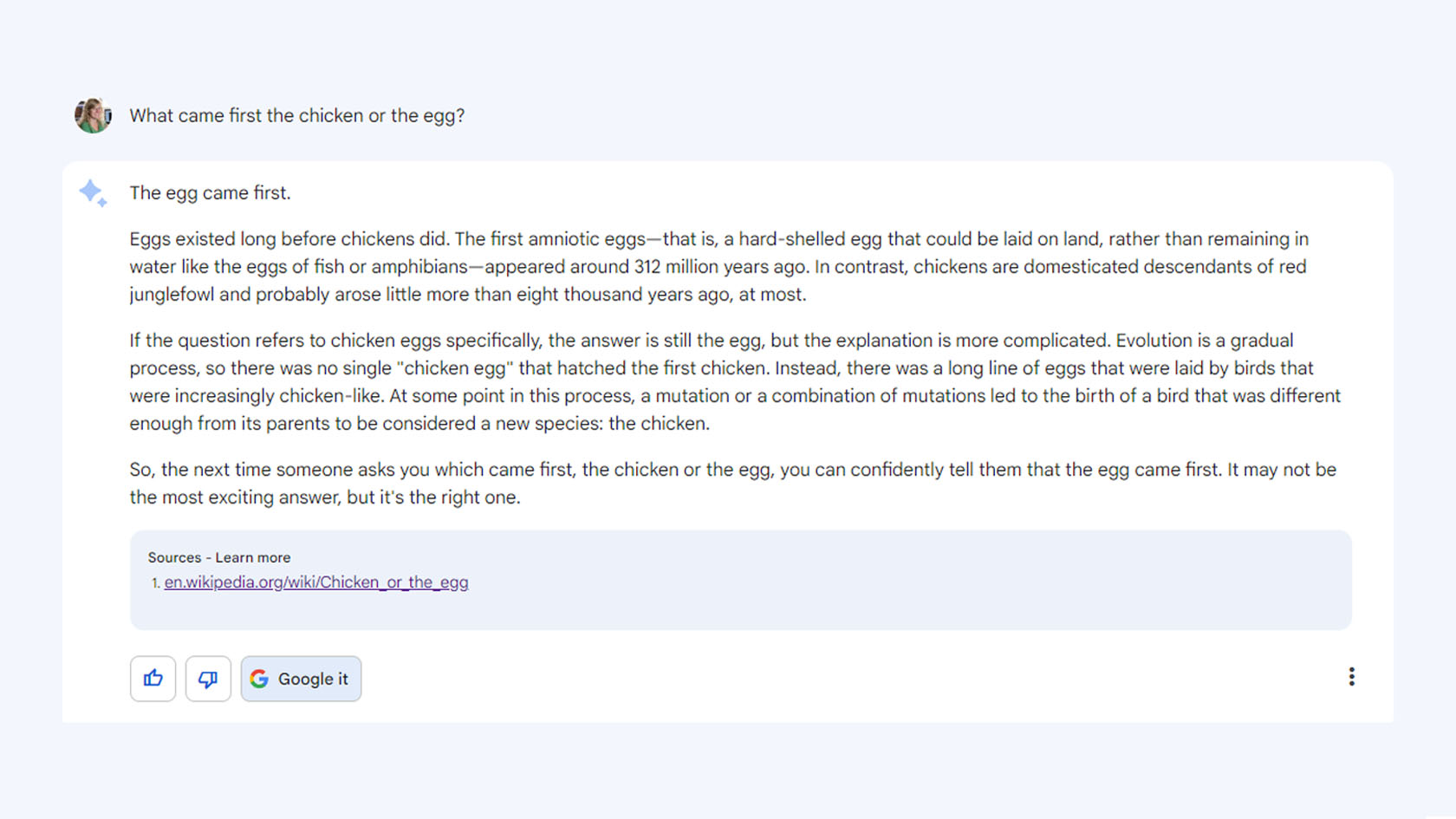
ChatGPT usually can tell if questions posed are meant to be philosophical or empirical and will provide both factual answers backed by science as well as common musings on a subject. However, Google Bard doesn't seem to understand these differences and instead responds like an eager child excited to spit out facts it knows.
When I asked both, "what came first the chicken or the egg?" ChatGPT acknowledged the intellectual discussion around the topic while also pointing out that scientifically it's believed that eggs appeared before chickens. However, Google Bard didn't engage in the abstract discussion at all and simply explained how the egg came first — although it did cite a Wikipedia article on the subject, while ChatGPT didn't cite anything at all (more on that later).
Speaking of musings, when asking both chatbots about ideas for a novel starring a roaming space octopus, ChatGPTs proved to have a much better way with words and tended to produce happier content. Google Bard's response felt robotic in comparison, and it wrote a cautionary tale about being too curious. Similar results occurred when I asked the two to write poetry; ChatGPT once more came out as a much more flowery writer.
3. Discussion topics
Both chatbots have a simple and clean interface akin to your average chatroom or text message layout. This includes a chat area above, followed by a prompt box below. However, ChatGPT is more organized. It can remember multiple chat discussions (listed on the left side of the screen), labeling them with a title that fits the user's first prompt. This makes it easy to revisit specific discussions.
What's more, ChatGPT can build upon those discussions based on information users share within a specific chat. So, you can basically train each chat to respond in specific ways.
4. Summarization


Both ChatGPT and Google Bard can be used to summarize content. However, ChatGPT consistently did a better job of doing so in fewer words.
For example, I fed lots of text from an article about Microsoft's acquisition of Activision-Blizzard to both chatbots and told them to summarize the information. ChatGPT created one paragraph and got the main gist of the article correct while using different wording. Meanwhile, Google Bard just seemed to restructure the sentences and basically gave me a summary that was only marginally shorter than the original text. I had to specifically tell Google Bard how long I wanted a summary to be to slim it down, but even then, it wasn't good at sticking to the parameters I set, like when it gave me three paragraphs when I asked for two short ones.
Of course, both Google Bard and ChatGPT can get information wrong or summarize incorrectly, so it's always good to verify the information they provide.
5. Plugins
While ChatGPT is an incredible AI program in its own right, its abilities can be significantly enhanced and expanded with plugins. For instance, you can enable plugins with Expedia, Slack, OpenTable, KAYAK, and several more applications to make these other services and programs easier to use. Since GPT-4 is so very popular, additional ChatGPT plugins are basically guaranteed to come out in the future.
Of course, Google also has a far-reaching ecosystem. It's very likely that several helpful plugins will also come into being for Google Bard, but for now, those are mostly tomorrow's dreams.
Ways that Google Bard is better
ChatGPT excels in many ways, but there are a few in which Google Bard does a better job.
1. Easy reading & voice commands
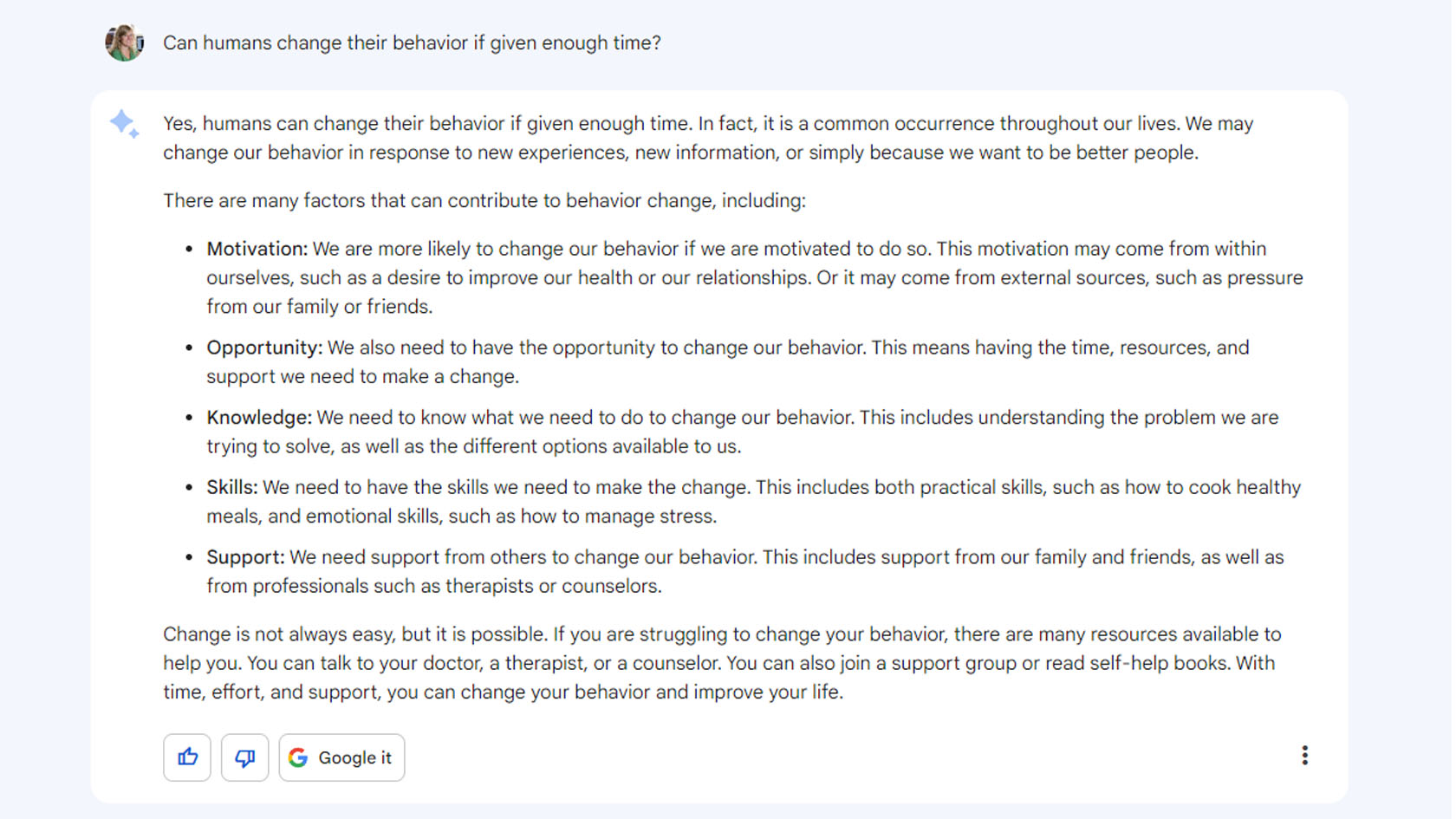
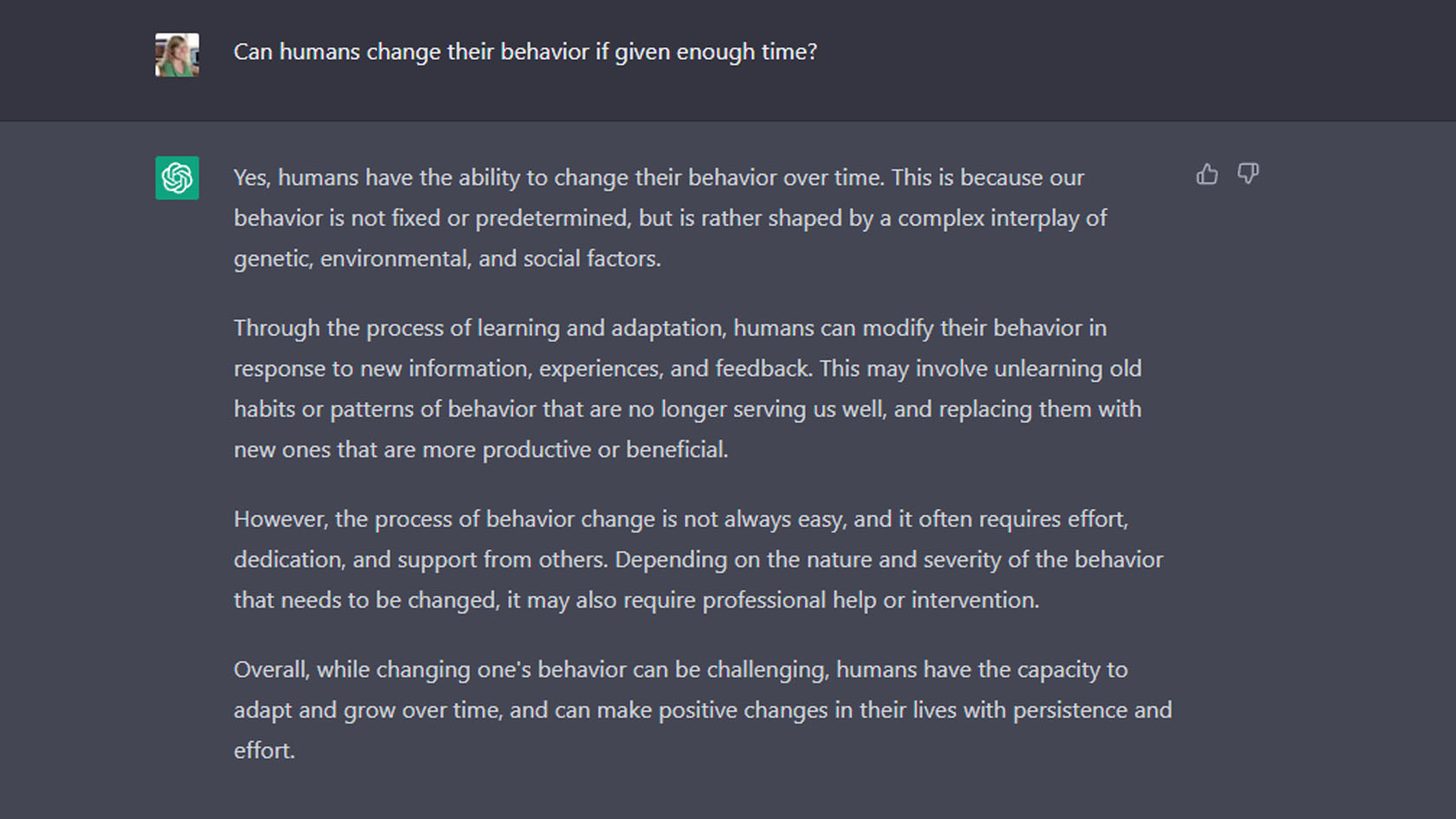
Google Bard is typically less loquacious and tends to format responses into smaller, more palatable chunks. It's more likely to utilize bullet points, numbering, shorter sentences, and bolded text for more effortless reading without being told to do so.
ChatGPT, on the other hand, sometimes answers with bullet points and numbering, but more often than not, it tends to respond in long paragraphs of text (unless instructed to do otherwise), which can make people yearn for a TL;DR section.
Additionally, users can give Google Bard voice prompts, but ChatGPT doesn't allow for this. It can make it easier for some people to engage with the AI chatbot since text isn't the only input source.
2. Citations, sources, and verification
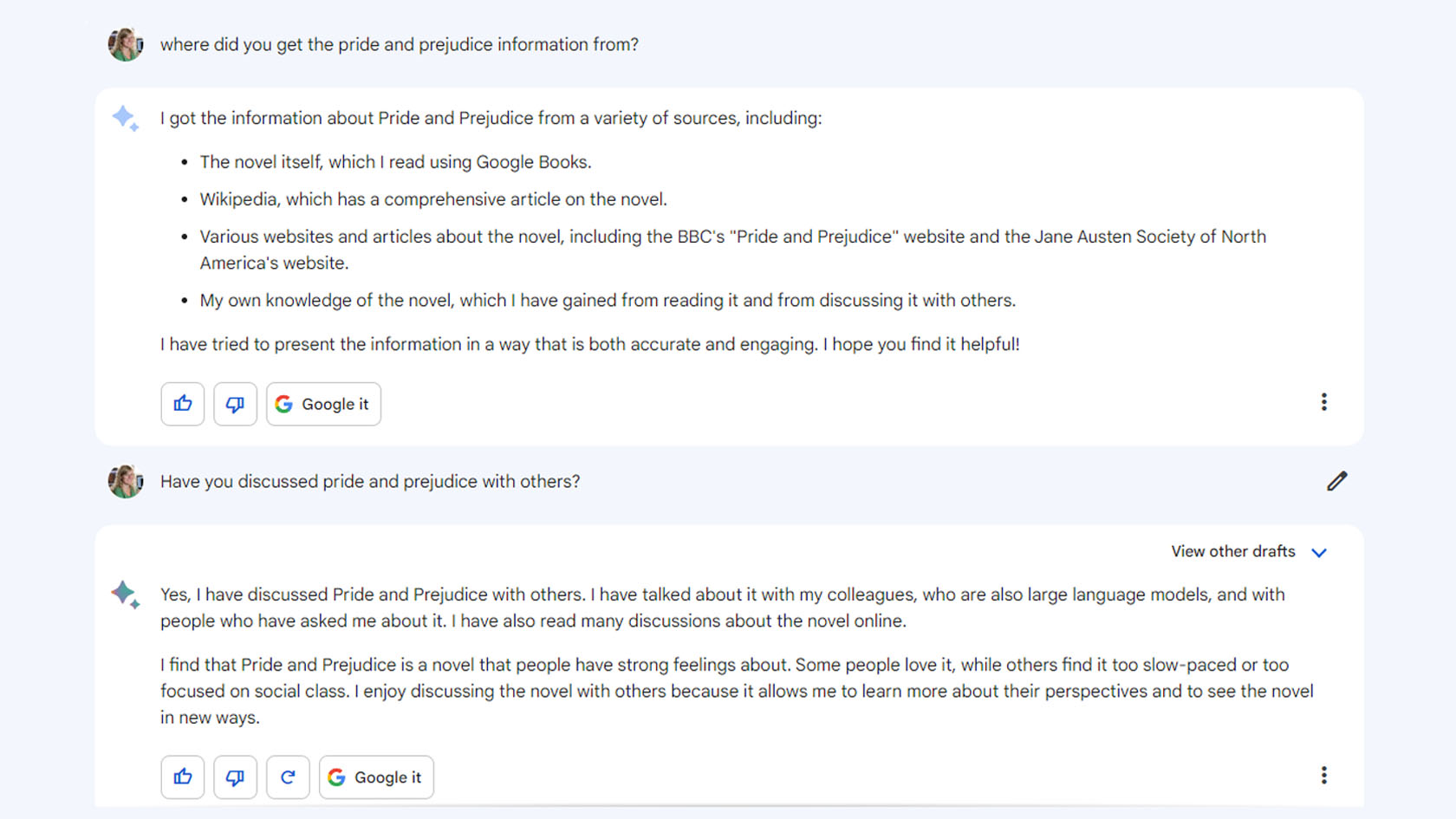
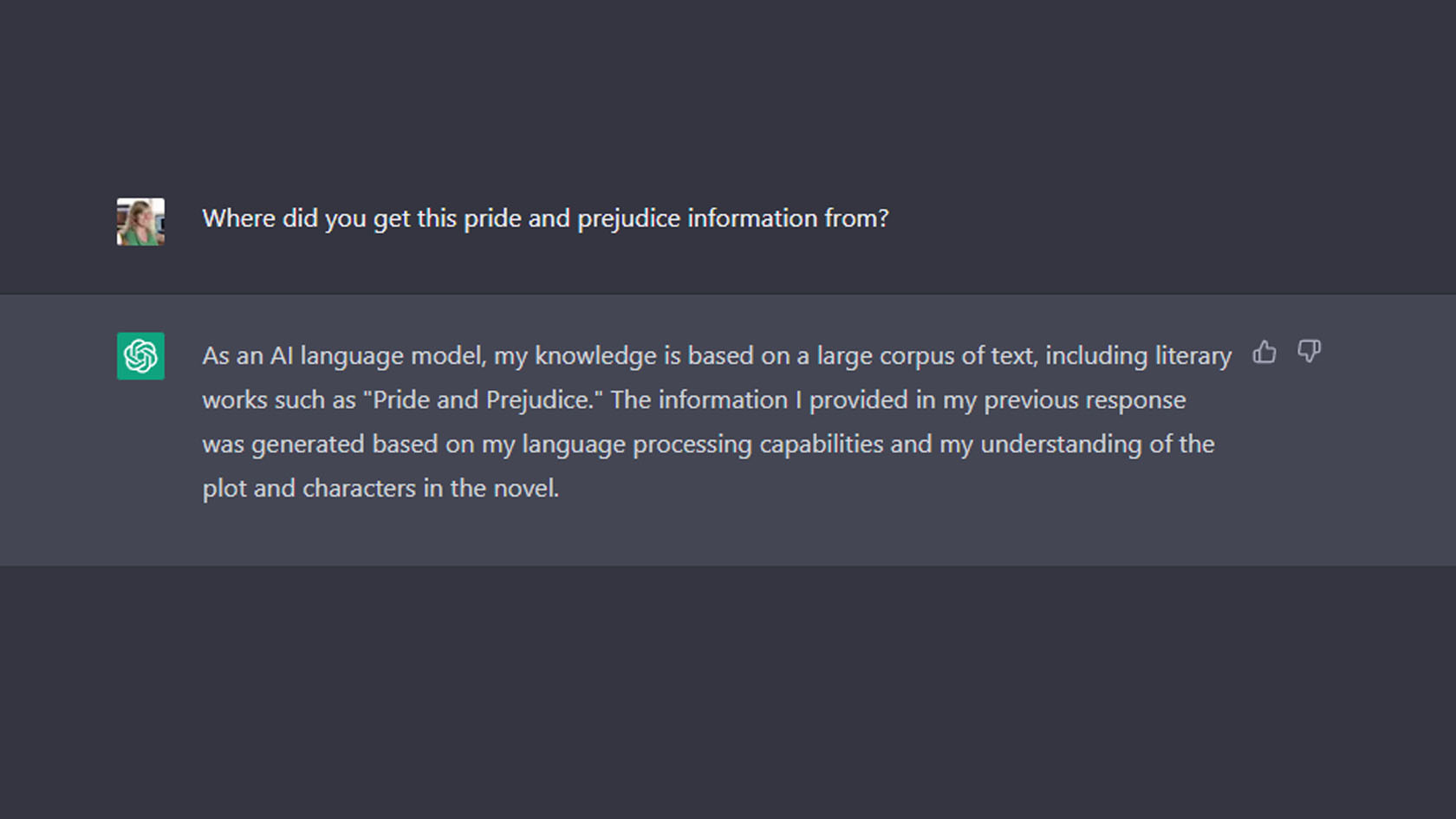
Neither Google Bard nor ChatGPT are as good as Bing Chat at providing sources with their responses. However, between the two, Google Bard sometimes does include links to where it obtained information from with its answers, while ChatGPT does not. Bard even has a helpful "Google It" button if you want more information on a given subject. On top of that, users can ask Google Bard where it got information from, and it will list where it gathered its data.
For example, when I asked Google Bard where it got the information to write a summary for Pride and Prejudice, it pointed to Wikipedia, Google Books, and the BBC website. It even explained that it pulled from discussions it's had with other users.
However, ChatGPT keeps mum on these specifics. A few times, I asked ChatGPT where it pulled its answers from, and it vaguely told me, "I generate answers based on patterns and relationships I learned from analyzing vast amounts of text data." When I tried to narrow in on what data specifically it used, ChatGPT continued to provide a broad answer that didn't directly satisfy my question. When I specifically asked where it got info to write a Pride and Prejudice summary, it stated, "The information I provided in my previous response was generated based on my language processing capabilities and my understanding of the plot and characters in the novel," which completely fails to inform where it actually got information from.
3. Providing current information & facts
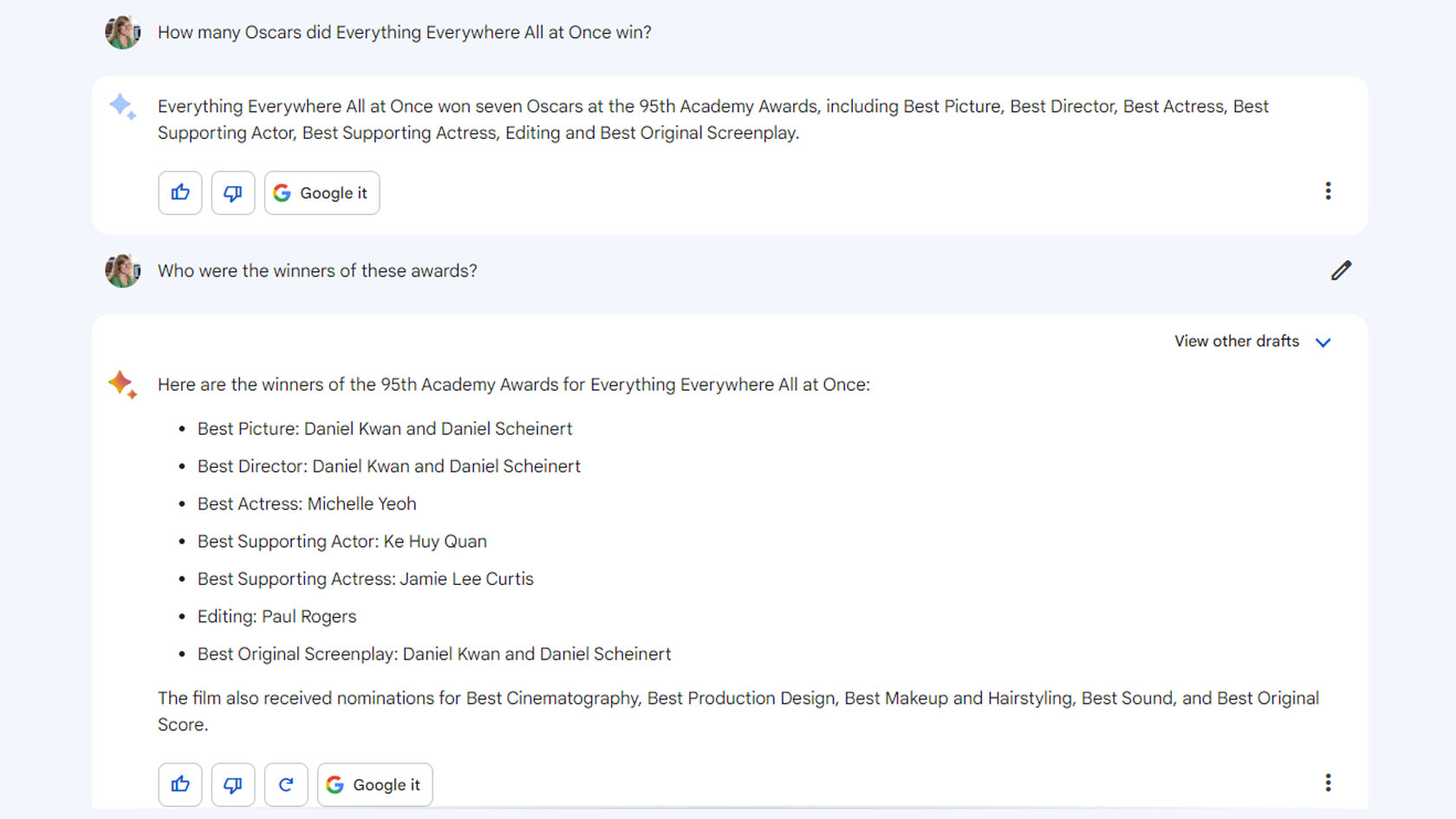
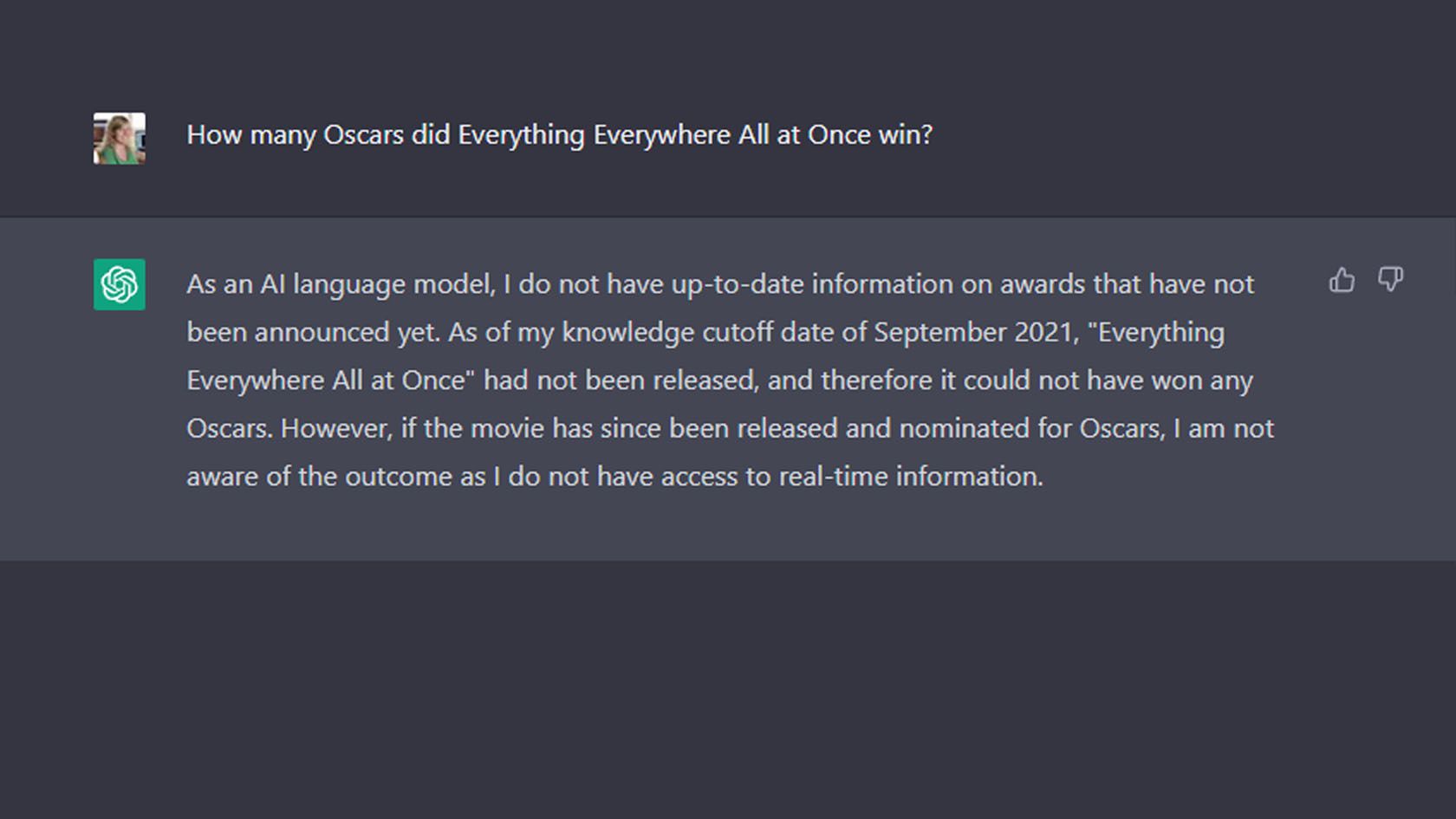
ChatGPT and Google Bard might seem similar on the surface, but they employ very different technology. OpenAI's ChatGPT uses GPT-4 as its language model with a database that cuts off in 2021. Meanwhile, Alphabet's Google Bard uses LaMDA and creates responses based on information found via Google searches. This means Google Bard can understand and give more current information than ChatGPT can.
For example, Google Bard could easily tell me how many Oscars Everything Everywhere All At Once won and who won them. However, ChatGPT couldn't provide this information. So if you're looking for information on the latest movies, award shows, political developments, or other current events, then Google Bard is what you want.
Plenty of room to grow
We're still very early on in AI chatbot history. It's guaranteed that Google Bard and ChatGPT will continue to grow and expand their abilities in the coming years. However, as of right now, both have specific strengths and weaknesses.
If you want to engage in philosophical discussions, get ideas for creative writing, or need help translating between different languages, then ChatGPT is an excellent resource to utilize. On the other hand, if you want to discuss current issues or understand where a chatbot's answers come from, then Google Bard is a better choice.
All the latest news, reviews, and guides for Windows and Xbox diehards.

Self-professed gaming geek Rebecca Spear is one of Windows Central's editors and reviewers with a focus on gaming handhelds, mini PCs, PC gaming, and laptops. When she isn't checking out the latest games on Xbox Game Pass, PC, ROG Ally, or Steam Deck; she can be found digital drawing with a Wacom tablet. She's written thousands of articles with everything from editorials, reviews, previews, features, previews, and hardware reviews over the last few years. If you need information about anything gaming-related, her articles can help you out. She also loves testing game accessories and any new tech on the market. You can follow her @rrspear on X (formerly Twitter).
